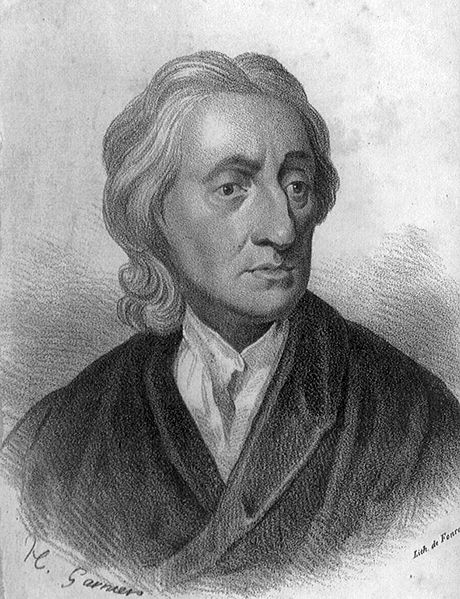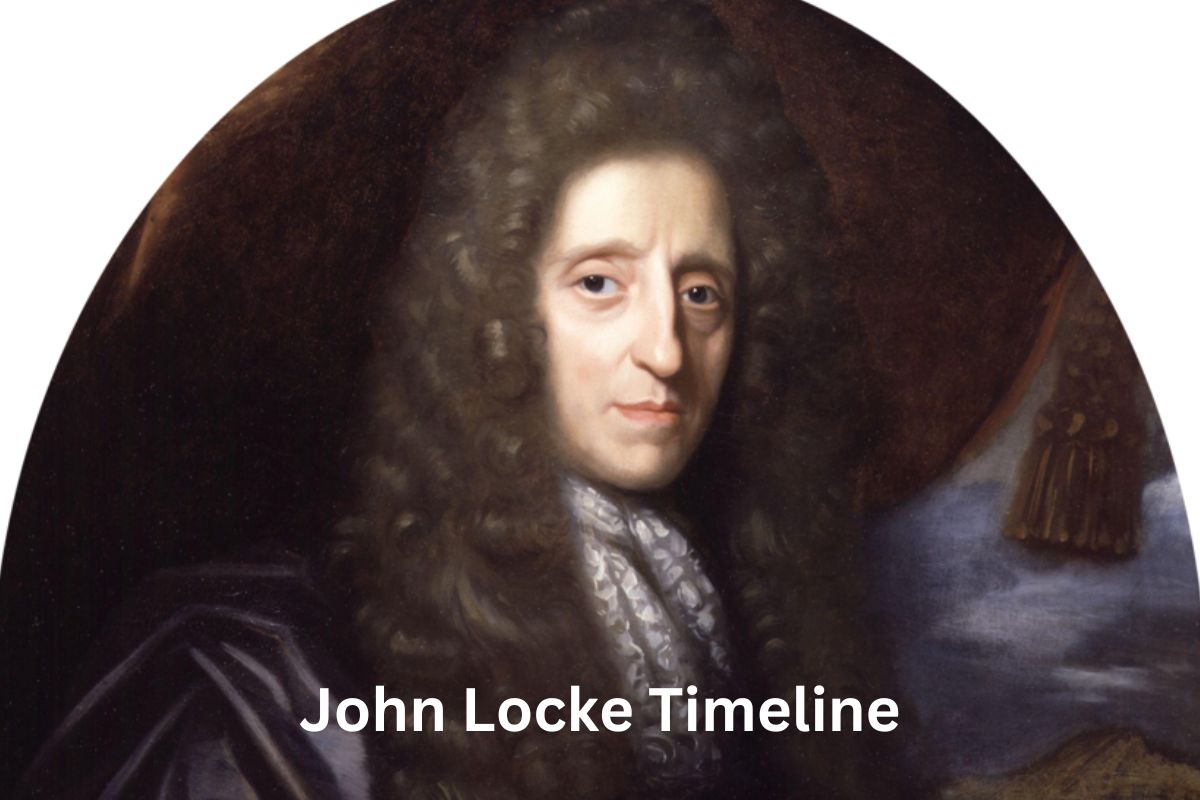John Locke (1632-1704) was an influential English philosopher and political theorist whose ideas continue to shape our understanding of government, individual rights, and knowledge.
Born in Wrington, Somerset, England, Locke attended Christ Church, Oxford, where he developed a keen interest in logic and metaphysics. He later formed a significant relationship with Anthony Ashley Cooper, the Earl of Shaftesbury, who became his patron and mentor.
Locke’s most famous works include “Two Treatises of Government,” which advocated for natural rights and limited government, and “An Essay Concerning Human Understanding,” where he proposed that all ideas are derived from experience.
His ideas played a pivotal role in the Glorious Revolution and influenced subsequent philosophers and political thinkers.
Locke’s contributions to political philosophy, education, and epistemology have had a lasting impact, making him one of the most important figures of the Enlightenment era.
| Year | Event |
|---|---|
| 1632 | John Locke is born on August 29 in Wrington, Somerset, England. |
| 1652 | Locke begins his studies at Christ Church, Oxford. |
| 1667 | Locke meets Anthony Ashley Cooper, later known as the Earl of Shaftesbury. |
| 1683 | Locke completes his work “Two Treatises of Government.” |
| 1688 | The Glorious Revolution takes place in England, influenced by Locke’s ideas. |
| 1690 | Locke publishes “An Essay Concerning Human Understanding.” |
| 1696 | Locke participates in drafting the “Fundamental Constitutions of Carolina.” |
| 1699 | Locke publishes “Some Thoughts Concerning Education.” |
| 1704 | John Locke passes away on October 28 in Oates, Essex, England, at the age of 72. |
Timeline of John Locke
1632 – John Locke is born on August 29 in Wrington, Somerset, England
John Locke is born on August 29 in Wrington, Somerset, England. He was born into a Puritan family, and his father was a country lawyer.
Locke grew up in a time of political and religious unrest in England, which would later shape his philosophical and political views.

1652 – Locke begins his studies at Christ Church, Oxford
At the age of 20, Locke begins his studies at Christ Church, Oxford. He initially focused on classical languages and literature but soon developed a keen interest in logic and metaphysics.
Also Read: John Locke Accomplishments
During his time at Oxford, Locke was influenced by the writings of philosophers such as René Descartes and Thomas Hobbes.
1667 – Locke meets Anthony Ashley Cooper, later known as the Earl of Shaftesbury
One of the significant turning points in Locke’s life occurs when he meets Anthony Ashley Cooper, the 1st Earl of Shaftesbury.
Cooper would become a significant patron and mentor to Locke. Cooper was a prominent political figure and philosopher himself and introduced Locke to influential circles in government and academia.
Also Read: John Locke Facts
Locke’s relationship with Cooper would prove crucial in his intellectual and political development. Locke became involved in various political projects and served as Cooper’s personal physician.
Cooper’s influence and support provided Locke with opportunities to engage with important political and philosophical discussions of the time.
1683 – Locke completes his work “Two Treatises of Government”
In 1683, John Locke completes his most famous work, “Two Treatises of Government.”
This work consists of two treatises: “The First Treatise” challenges the divine right of kings and argues for the right of people to rebel against oppressive rulers, while “The Second Treatise” presents Locke’s theory of natural rights, the social contract, and the idea of limited government.
The treatises had a profound impact on political thought and played a significant role in shaping the ideas behind the Glorious Revolution.
1688 – The Glorious Revolution takes place in England, influenced by Locke’s ideas
The Glorious Revolution takes place in England. Locke’s ideas, particularly those expressed in his “Two Treatises of Government,” greatly influenced the political climate of the time.
The Glorious Revolution saw the overthrow of King James II and the ascension of William III and Mary II to the throne. Locke’s writings provided philosophical justification for the revolution by advocating for limited government, individual rights, and the consent of the governed.
1690 – Locke publishes “An Essay Concerning Human Understanding”
Locke’s “An Essay Concerning Human Understanding” is published. This monumental work explores the nature of human knowledge and understanding. In the essay, Locke argues against innate knowledge and proposes that all ideas are derived from experience.
He introduces the concept of the tabula rasa, the notion that the mind is a blank slate at birth, which is subsequently filled through sensory experience and reflection. This work had a significant impact on epistemology and laid the foundation for empiricism as a philosophical approach.
1696 – Locke participates in drafting the “Fundamental Constitutions of Carolina”
Locke becomes involved in drafting the “Fundamental Constitutions of Carolina.” This document was intended to serve as a constitution for the English colony of Carolina (present-day North and South Carolina).
Locke was commissioned to develop a framework for the government of the colony. Although the document was never fully implemented, it reflected Locke’s political ideas, including the separation of powers, religious toleration, and the protection of individual rights.
1699 – Locke publishes “Some Thoughts Concerning Education”
Locke publishes “Some Thoughts Concerning Education.” In this work, Locke presents his views on education and offers practical advice for the upbringing and education of children.
He emphasizes the importance of nurturing reason, critical thinking, and moral development in children. Locke’s ideas on education had a lasting impact and contributed to the emergence of modern educational practices.
1704 – John Locke passes away on October 28 in Oates, Essex, England, at the age of 72
John Locke passes away on October 28 in Oates, Essex, England, at the age of 72. Locke’s final years were marked by declining health, and he had been suffering from various ailments.
Despite his deteriorating physical condition, Locke remained intellectually active until his death. His ideas had already gained considerable recognition during his lifetime, and his works continued to be widely read and influential even after his passing.
John Locke’s death marked the end of a remarkable life dedicated to philosophy, political theory, and the pursuit of knowledge. His ideas and writings had a profound impact on subsequent generations of philosophers, political thinkers, and scholars. His contributions laid the groundwork for modern liberal thought, individual rights, and the principles of limited government that are still relevant today.
